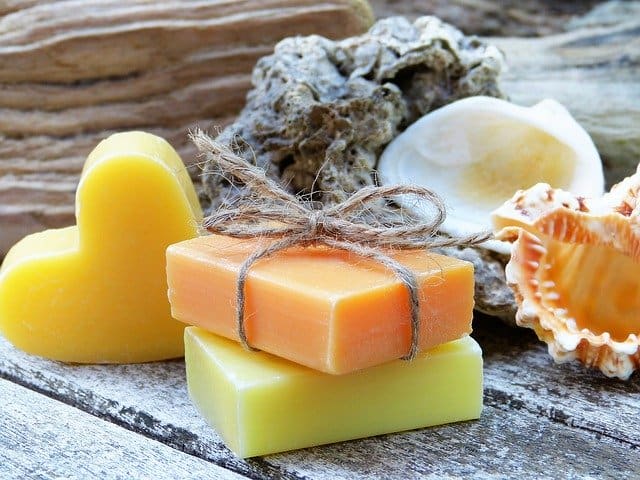
5 days of simple mental hygiene practices
CDC hygiene recommendations
Turns out Mom was right all along. The top CDC recommendations for preventing the spread of the coronavirus that is causing Covid-19 are:
- Wash your hands. A lot.
- Cover your coughs and sneezes.
- Distance yourself socially from others when possible—particularly when you’re sick.
- Clean everything.
And I’m sure Mom would add:
- Eat your vegetables (especially the dark green leafies).
- Get plenty of sleep.
- Don’t pick your nose.
- For the love of all that’s holy, don’t put that in your mouth!
But what would Mom have to say about our mental and emotional health?
stress
As the world appears to be spinning out of control, our stress levels are skyrocketing—in addition to the chronic stress many of us already experience—and that will have long-term effects.
If you haven’t looked into what stress does to us, take a listen to this podcast episode with Emily Fletcher: the entire episode is great (highly recommend for anyone starting a meditation practice)—the stress discussion starts at about 14:09 minute mark.
Emily reiterates very succinctly what I call “the saber tooth analogy,” which is basically this: our bodies have a stress response because once upon a time, we might have been attacked by a wild beast. This is called eustress—the “good” stress that helps us to either perform crazy acts of physical strength in fighting the beast of to be very light on our feet in fleeing the beast: hence the expression “fight or flight.”
Yes, and those occasions were (and might still be) few and far between.
Unfortunately, despite being relatively free of truly dangerous situations on the physical plane, our lives have veered into a state of chronic mental and emotional stress: there are bills to pay, projects to finish, mouths to feed, promotions to pursue, so much information to take in…. And the bad news is that our bodies don’t distinguish between emotional stress and physical stress.
Our bodies do a number of miraculous things in response to stress: our breath comes more quickly to get more oxygen, our hearts pump more fiercely to circulate that oxygen, our muscles use their newfound blood supply to work harder….
And under chronic stress, our bodies also shut down all non-vital functions for the sake of pouring all resources into our survival.
What are non-essential functions?
- Metabolism: who’s got time to get all the nutrition we need at this point? Our bodies can either evacuate everything in our digestive tract under acute stress (yes, that’s a nice way to say we need to take a nervous poo) or become extremely constipated (it’s not safe to squat right now, so just hold it!)
- Poor sleep: on high alert, who’s going to sleep? And if you’re not sleeping, your mind will be slow or even “foggy.” You may also find you crave more simple carbohydrates, and we know where that can lead: unhealthy weight gain.
- Fertility: have you ever researched how many female athletes who train really hard actually get their periods? And have you been keeping up on the statistics about the increases in fertility treatments for the average couple?
- Appearance: brittle hair and nails, more rapidly aging skin
- Lowered immunity: we’ve got to take care of the here and now—let’s not worry about tomorrow!
Heard enough yet?
body chemistry
When we are stressed (acutely or chronically) our systems are flooded with cortisol and adrenaline, AKA the stress hormones, and rarely get a taste of serotonin and dopamine, AKA the feel good chemicals.
And the feel good chemicals are the ones we need so that our bodies can return to a state of “rest and digest” or “stay and play.”
In this time of pandemic, we may be under acute physical stress if we are infected and fighting off the virus—and the majority of us are really more under mental/emotional stress.
So how do we reduce the stress hormones and increase the feel good chemicals?
mental hygiene
Just as we practice good hygiene for our physical bodies, there are actions we can take to help our minds and spirits be healthier.
In the next five days, I’ll be making some mental hygiene (mental floss?) suggestions on my podcast, and I invite you to try them out! Remember, you don’t need to stress about them: if something sounds good to you, try it; if not, then pass on it.
The most important thing to remember is that now is the time to take care of yourself—not in the haircut-massage-mani-pedi-movie-night-glass-of-wine-with-my-posse way but on a deeper level.
Who’s got time for that?!? There are kids to supervise, meals to prepare, rooms to clean…. Do you hear yourself?
To use two well-worn expressions, “You cannot pour from an empty cup” and “It’s vital to put your own oxygen mask on first.” Otherwise, you will soon be no good to anyone.
My suggestions will only take a few minutes, I promise.
At the same it, if it’s possible, I highly recommend carving out a “soul care container” for yourself during this time—sometimes it’s easier to make a change during a period of extreme disruption than when you can find a convenient excuse not to step out of your comfort zone. And you may discover that you can hold onto it once the pandemic is over!
make the connection
Join me on The Simply: Health Coaching Podcast March 23–27, 2020 for 5 days of simple mental hygiene practices!



